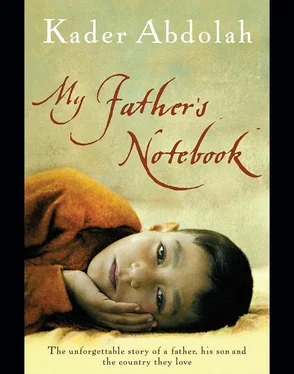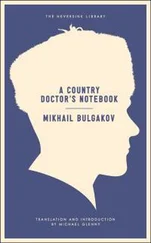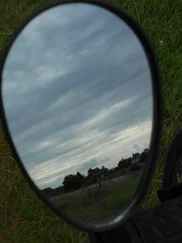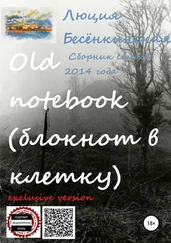Tina’s two oldest daughters didn’t go to jail, but their husbands were arrested and imprisoned by the secret police of the new regime, the Islamic Republic of Iran. When they were finally released a few years later, they were broken, both physically and mentally. It was years before they could function normally again.
The revolution had begun. The masses had risen up against the shah. But it came from a totally unexpected direction.
One night, when I was in my father’s shop, he said, “The man who reads is gone!”
“Who?”
“The holy man who sits in the sacred well and reads.”
“Gone? What do you mean, ‘gone’?”
Perhaps I should refresh your memory. The Shiites have been waiting nearly fourteen centuries for the Mahdi, the messiah figure who would relieve the world of its suffering and meanwhile waited in a well, reading books.
Reza Shah had covered up the well. He wanted to strike a blow for modernisation and, at the same time, curb the power of spiritual leaders.
But the mullahs refused to be suppressed. They stepped up their fiery resistance to the Pahlavi kingdom.
My father was more interested in the Mahdi’s kingdom.
“Someone smashed the stone that used to cover the well,” my father signed. “The sacred well is now open. The holy man is gone.”
The well was located in a place of strategic importance: a military zone. Obviously, the fact that some religious fanatic had broken it open was not a coincidence. Something important was going on. The mullahs were declaring war on the shah.
“Do you know who smashed the stone?”
“Allah,” he signed, pointing at the sky. “The Holy One himself. He wants to fix things. I’ve seen His footprints.”
“What did you see?”
“I was in Saffron Village. I climbed up the mountain with the villagers and saw, with my own eyes, the imprint of his bare feet in the rocks.”
“Footprints in stone?”
“Yes, you could see that he’d stepped out of the well and gone into the countryside. The villagers knelt and kissed his footprints. I kissed one of them, too. It smelled heavenly.”
The holy man was free. One day the Mahdi, and not the leftist movement, would conquer the cities and overthrow the dictator. He had come to help the poor, lift up the weak, heal the sick and comfort the mothers who had lost their sons and daughters.
“People cried,” my father continued, “and people laughed. They put the Holy Book on their heads, gathered at the foot of the mountain and turned to face Mecca. Then they split into groups and followed the footprints.”
“Where did the footprints go?”
“To the city with the big, golden-domed mosque. To the city where the women all wear black chadors, the one where so many imams live.”
He meant Qom.
So the Messiah had gone to Qom — the Vatican of the Shiites. I immediately drove back to Tehran.
Akbar No Longer Wants to Be Deaf and Dumb
Once more pilgrims journey to the sacred well.
We go along with them .

In the days when the holy city of Qom was in an uproar and believers flocked to it from every corner of the land, Tehran was undergoing a revolution of its own. Parties that had been suppressed for decades were springing back to life and letting their voices be heard. Everywhere you looked you saw flyers and posters, which had been distributed during the night and pasted on the walls.
The political prisoners, realising that the revolution had begun, went on a mass hunger strike.
In Qom, the situation had spun out of control. As soon as it got dark, the laws of the shah could no longer be enforced, only those of the mullahs. No policeman dared show himself at night. In other cities, as well, people began to speak out.
Saffron Village had its own story. From all over the country, the blind, the deaf and the lame were on their way to Saffron Mountain, so they could touch their foreheads to the Mahdi’s footprints and beg to be healed.
Because the sacred well was inaccessible, the local imam had ordered that a makeshift shrine be built at the foot of Saffron Mountain. The sick, the deaf, the lame, the mute, the blind and the otherwise afflicted tied one end of a long rope to the bars of the shrine and the other end around themselves, and lay down twenty or thirty yards away. They fasted and swore not to break their fast until the Mahdi came and relieved them of their burdens.
It was unbelievably crowded. The deaf lay side by side and wept, the blind sat in another cluster and begged, the sick groaned incessantly and the retarded roamed in and out of the wailing masses.
The voice of the imam of Saffron Village blared over a loudspeaker, urging believers to pray to the Mahdi and beseech him, from the bottom of their hearts, to come quickly to their aid.
Golden Bell and I were hunting among the deaf-mutes for my father. We didn’t know for sure whether he’d gone to Saffron Mountain. Golden Bell had phoned to tell me that he’d suddenly disappeared and our search had brought us to the crowd of pilgrims.
“I see him! He’s over there!” Golden Bell exclaimed.
My father was lying on the ground with his eyes closed. Around his right ankle was a long rope, tied to the shrine like hundreds of others.
He had lost weight and let his beard grow, which made him look older. I sat down beside him and took hold of his wrist. He opened his eyes, surprised to see me.
“What are you doing here?” he gestured weakly.
“What are you doing here?”
For an entire week he had fasted and had drunk almost nothing. His lips were cracked and blistered. The imam came by, placed a wet, fragrant-smelling handkerchief on his forehead and murmured, “The Mahdi will soon come and bless you, my poor man!”
And then he moved on to the next one.
“Come on!” I said to my father. “We’re going home!” I offered him my hand so he could pull himself up.
He refused to take it.
“Listen,” I said, “you could die of thirst. Golden Bell, help me lift him up. I’m going to have to carry him.”
He didn’t want me to. He’d never resisted me like this.
“I’ve read him so many books,” I said to Golden Bell. “About the universe, the earth, the moon, mankind. And now he’s lying here like an illiterate peasant, like a deaf-and-dumb old man. He won’t even look at me.”
Golden Bell stroked his forehead, wet his lips with a damp cloth and shook him gently. “Come, Father. Let’s go home. It pains me to see you so weak. Please open your eyes.”
He opened his eyes.
“Tina’s been crying,” she signed. “Come home for a few days. You can always come back here again if you want to. Come, it’ll be better this way.”
He stopped resisting.
“Take his shoes,” I said to her. Then I carefully lifted him up and carried him to the car, which was parked a mile or so away.
I laid him on the back seat and drove to Senejan. Ever since the revolution had begun, I’d been visiting my family from time to time, so now I drove him home myself.
Tina promptly made him some soup, moaning all the while, “Oh, the misery I’ve suffered because of that man. What did he think the Mahdi was going to do? Teach him how to talk? I hardly have any peace and quiet as it is. God help me if he starts to talk.”
“That’s enough, Mother,” Golden Bell protested. “You shouldn’t talk about Father like that.”
“Why not? What am I supposed to say when my husband comes home half-dead?”
“Stop it, Mother, or I’ll—”
“Or else you’ll what? You aren’t exactly an angel, either. I can be just as hard on you, if I have to. You’re ruining my life. Now that your brother’s here, I want to make a few things clear. Ishmael, I’ve lost control over your sister.”
Читать дальше













